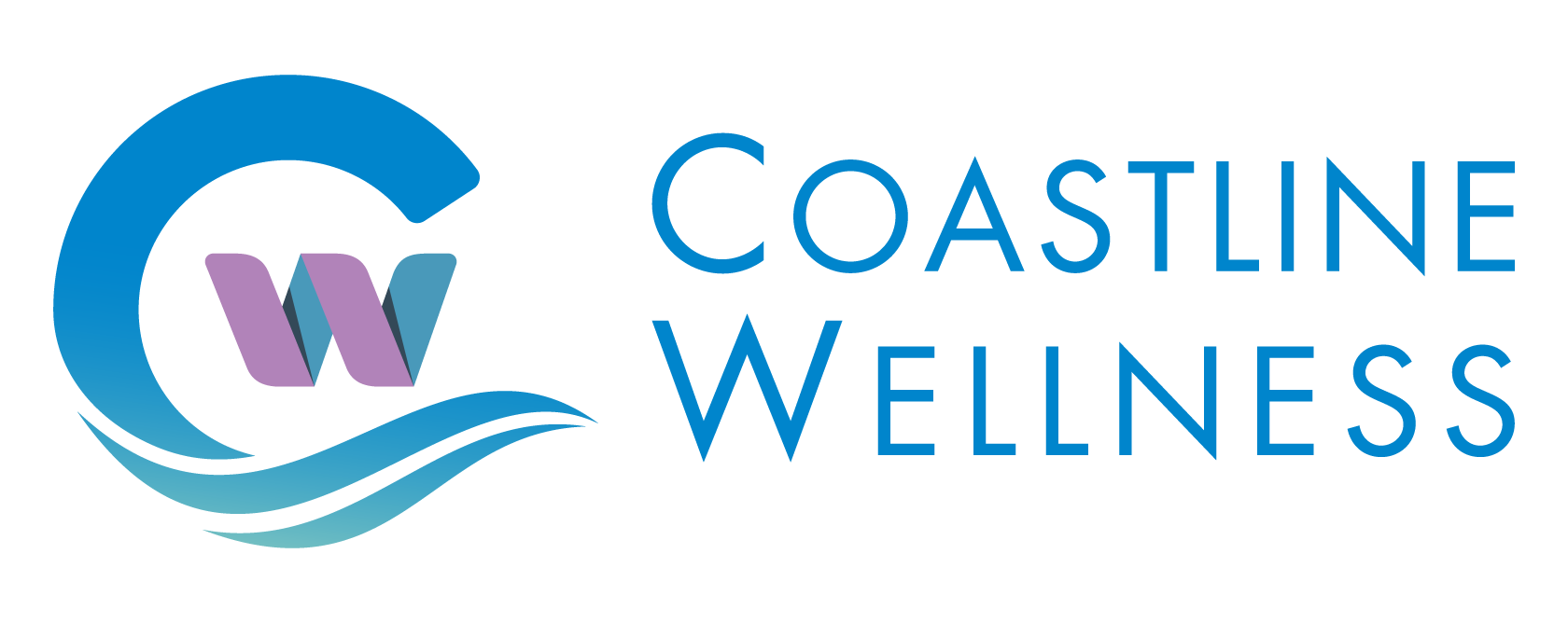What is NAD Infusion Therapy & What are the Benefits?
NAD infusion therapy has been used in medical treatments since the late 1960s, and for good reason: there are many benefits to NAD therapy. This blog will outline what NAD therapy is, how it works, how IV (intravenous) treatment compares to oral supplements, its possible benefits, and your at-home treatment options.
So what is NAD Infusion Therapy? NAD stands for nicotinamide adenine dinucleotide. It’s a coenzyme that binds with elements in your body and can help regenerate cells, reversing age-related effects and enhancing cognitive processing. It can also reduce withdrawal symptoms during drug addiction recovery, among other substantial benefits.
How Does NAD Infusion Therapy Work?
Your body depends on vitamins, minerals, and other nutrients in order to maintain optimum function. When your body lacks the NAD coenzyme, it impairs cellular function leading to age-related effects and decreased cognitive functioning. During your NAD IV therapy treatment, NAD molecules will bind with proteins in your body to create active enzymes that your body will use to metabolize fuels and revitalize your cells. The NAD coenzymes will combine with other elements to become niacin (vitamin B3), which is the vitamin that’s responsible for revitalizing cells from the inside out.
The possible benefits of NAD Infusion therapy
Supports energy levels
Since NAD revitalizes cells throughout your whole body, it can help nearly anyone. One of the most common reasons NAD IV therapy is used is for the energy boost it provides. This increase in energy can improve athletes’ performance. It also improves metabolic processes, which can help you reach or maintain a healthy weight when combined with a healthy diet and exercise. NAD is vital to the metabolic process, which is why low NAD levels are important to avoid. As such, NAD is being explored as a treatment for chronic fatigue syndrome.
Enhancing brain function
Brain fog is the term for those frustrating times when you have difficulty in achieving clear, focused thoughts. You might find it difficult to focus on a particular task, or you may notice your productivity declining at work or school. NAD IV therapy can help you fight off brain fog because it saturates your brain’s cells with the enzymes it needs to perform better. NAD therapy can help improve cognitive function and clear up the haze so you can focus on whatever task needs your attention.
NAD does this by managing production of the PGC-1-alpha protein, protecting brain cells from aging. Excess free radicals, which are generated by body function, can damage cells, an effect known as oxidative stress. Because the brain utilizes 20% of the body’s oxygen supply, it is particularly vulnerable to oxidative stress.
This damage can impair brain plasticity- the ability to adapt to a changing environment. Neuronal stress resistance can also be negatively impacted, affecting cellular messaging. Additionally, NAD combats the inflammation associated with cognitive decline, which has been linked to neurodegenerative disorders like Alzheimer’s and Parkinsons.
Reverses aging and supports whole-body wellness
NAD offers many benefits for the mind, but it can also positively affect your body. The NAD coenzyme is essential for activating antioxidants and reducing inflammation, which helps reduce pain. That’s why NAD therapy may help some individuals manage chronic pain. NAD works at a cellular level to help your cells repair themselves more efficiently. This helps reverse age-related damage, which, in turn, helps you look younger and more rejuvenated. In additionI, the increase of serotonin that comes with NAD IV therapy acts as a mood stabilizer and can alleviate depression.
Aids in addiction recovery
Addiction to drugs or alcohol changes your brain chemistry, and this leads to cravings that often result in relapse. NAD IV therapy helps to speed up healing in your brain, which makes you less likely to experience cravings and severe withdrawal symptoms.
How does NAD Infusion therapy compare to other NAD supplements?
NAD IV supplementation involves delivering NAD intravenously. This means NAD is added to IV fluids which are stored in sealed bags and suspended above the head of the patient receiving treatment. The bag is connected to a long, thin tube with a needle at the end, which is inserted into a vein. IV fluids and NAD flow through the tube directly into the bloodstream. Other ingredients, like nutrients, can also be added to treatment.
Bypassing the digestive system ensures a higher absorption rate. Taking supplements orally means they must be broken down before they can be absorbed, which can result in up to 50% of ingredients being lost. Delivery directly into the bloodstream also means ingredients are bioavailable right away, so your body can feel the effects of treatment faster. Hydrating IV fluids help flush toxins and free radicals from your system, allowing your body to function at its best.
NAD IV therapy treatments typically involve multiple 2-4 hour sessions over the course of a few weeks. Once treatment is complete, the benefits of NAD therapy can last several months. The number of sessions and duration of treatment differs on a case-by-case basis, depending on factors such as the health concern you are trying to address, your general overall health, and several other factors.
Who Should Consider NAD Infusion Therapy?
NAD therapy is a forward-looking treatment that is helping many people to enhance their health, quality of life, and vitality levels today while also potentially staving off the clock in terms of aging. People who seek out NAD therapy using IV drips can likely look forward to increased energy levels, improved athletic performance, a faster metabolism, and an overall feeling of “being on point” that has faded with the years.
In addition to reporting that they feel better than ever, many people actually find that they begin to look younger and healthier after beginning NAD therapy. However, the decision to begin NAD therapy is something that should be made in collaboration with a trained and experienced medical provider. It’s also important for anyone looking into how to get NAD supplements to know that IV therapy is currently the only recommended method for boosting the body’s NAD levels. Supplements that can be purchased simply don’t offer the bioavailability to create an effective way of absorbing NAD. As a result, these products simply waste time and money without creating results.
NAD has the potential to change everything we think we know about aging. Would you like to learn more about how to book a NAD IV therapy appointment? Simply contact us at Coastline Wellness and we will get you feeling the way you should! Reach out for a consultation today!
Ketamine for Treatment-Resistant Depression: Discover How it Helps
Depression is an insidious condition that affects millions of people worldwide, and for some, the struggle to find effective treatment can be a long and exhausting journey. Traditional antidepressants like SSRIs, SNRIs, and other medications may take weeks to show any results, and even then, they don't work for everyone. For those suffering from Treatment-Resistant Depression (TRD), the challenge can seem insurmountable. But what if there was a solution that could offer rapid relief, sometimes within hours, and could help reset the brain's pathways? At Coastline Wellness, we’re proud to offer a revolutionary therapy that’s giving hope to those who have tried everything else: Ketamine IV therapy.
What is Treatment-Resistant Depression?
Treatment-Resistant Depression is a form of depression where individuals don't experience sufficient relief from symptoms after trying multiple antidepressant medications. It affects a significant portion of the population, leaving them feeling hopeless and overwhelmed by a sense of despair. Many people with TRD also experience suicidal ideation and extreme emotional distress, making it critical to find an alternative treatment.
Enter Ketamine: A Breakthrough in Depression Treatment
Ketamine, a medication that has been used safely in hospitals for decades, is now being recognized as a powerful tool in the treatment of TRD. Traditionally known for its anesthetic properties, ketamine has shown tremendous promise in addressing mental health disorders, including Major Depressive Disorder (MDD), PTSD, and even chronic pain. But perhaps its most groundbreaking application is in the treatment of Treatment-Resistant Depression.
Unlike traditional antidepressants, which require weeks to begin working, ketamine can provide rapid relief. For many patients, improvement is noticeable within hours of their first treatment. By targeting different neural pathways in the brain, ketamine helps to reset the brain's chemistry, enhance neuroplasticity (the brain’s ability to form new connections), and restore balance in areas associated with mood regulation.
The Benefits of Ketamine Infusions
- Rapid Relief: Ketamine offers immediate improvements in mood, often within hours to days, making it a crucial option for those in crisis.
- Effective for Treatment-Resistant Depression (TRD): Ketamine has been shown to help individuals who have not responded to other antidepressant treatments, providing a new path to recovery.
- Neuroplasticity Enhancement: By promoting the growth of new brain connections, ketamine helps patients break free from negative thought patterns, offering lasting emotional healing.
- Low Risk of Addiction: Unlike many other medications used to treat depression, ketamine carries a very low risk of addiction.
- Improved Cognitive Function and Mood: Many patients report enhanced cognitive clarity and a general improvement in their overall sense of well-being following treatment.
A Safe and Controlled Treatment Option
At Coastline Wellness, we understand the importance of patient safety. Our team of highly trained professionals administers Ketamine IV infusions in a comfortable, monitored environment. Vital signs are closely observed throughout the treatment process, ensuring that any concerns are immediately addressed.
Additionally, a chaperone is required to accompany the patient to ensure they are safely transported home after their session. This precaution ensures the overall well-being of the patient and provides peace of mind for both the patient and their loved ones.
Not Just for Depression: Ketamine's Versatility
While Ketamine therapy has proven to be an effective treatment for TRD, it also shows promise for individuals struggling with other conditions like PTSD, anxiety, chronic pain, and even traumatic brain injury (TBI). The medication helps individuals process traumatic memories, alleviate pain, and restore emotional stability. For patients suffering from chronic pain, ketamine’s analgesic properties offer significant relief by modulating pain receptors in the brain.
What to Expect from Ketamine Therapy at Coastline Wellness
At Coastline Wellness, we are committed to offering a compassionate and supportive environment for those seeking relief from mental health conditions. Our experienced team works with each patient to create a personalized treatment plan tailored to their unique needs.
Ketamine IV therapy is administered over a series of sessions, with many patients noticing improvements after their first infusion. For long-term success, we work closely with patients to monitor their progress and adjust treatment as necessary. Whether you’re struggling with depression, anxiety, or chronic pain, we are here to guide you on your journey to recovery.
Conclusion: A New Era of Hope
If you or a loved one is grappling with Treatment-Resistant Depression, there is hope. Ketamine IV therapy offers a transformative approach to mental health, providing rapid relief for those who have struggled with traditional treatments. It’s a powerful alternative for those who feel like they've exhausted all other options, and it’s available now at Coastline Wellness.
Reach out today to schedule a consultation and discover how Ketamine therapy could help you reclaim your life and your joy. You don't have to suffer in silence any longer—let us help you take the first step toward healing.
Is Ketamine an Opioid?
Is ketamine an opioid? In recent years, ketamine has gained significant attention as a treatment for various mental health and chronic pain conditions, but there is often confusion about whether or not it is an opioid. Let’s clarify what ketamine is, how it works, and its differences from opioids.
What Is Ketamine?
Ketamine is a powerful medication initially developed as an anesthetic in the 1960s. It has since expanded into medical fields like emergency medicine, pain management, and mental health due to its unique effects on the brain. So many might naturally ask, "Is ketamine an opioid?" Well unlike traditional opioids, ketamine does not work through the body’s opioid receptors; rather, it targets a neurotransmitter called glutamate, which is crucial for mood regulation and pain perception.
How Does Ketamine Work?
Ketamine works by blocking the NMDA (N-methyl-D-aspartate) receptors in the brain, leading to increased levels of glutamate, which in turn helps improve brain plasticity. This mechanism is essential for helping the brain “rewire” itself, making ketamine particularly effective in treatment-resistant depression, PTSD, and certain chronic pain conditions.
This process is vastly different from how opioids work, as opioids bind to specific receptors in the brain and spinal cord to dull pain and produce euphoria. While opioids can be effective for acute pain, they also come with a high risk of dependency and other side effects. Ketamine, on the other hand, does not bind to opioid receptors, meaning it has a much lower risk of dependency and provides relief through an entirely different biochemical pathway.
Ketamine vs. Opioids: Key Differences
1. Dependency and Addiction Risks:
Opioids carry a high risk of addiction due to their effects on the brain’s reward system. Ketamine, however, is considered far less addictive because it doesn’t interact with opioid receptors. In controlled therapeutic settings, ketamine is not associated with the same cycle of dependence seen with opioids.
2. Uses in Mental Health:
One of the groundbreaking uses of ketamine is in treating severe depression, anxiety, PTSD, and even some cases of bipolar disorder, particularly when other treatments haven’t been effective. This off-label use, administered under medical supervision, offers rapid relief, often within hours, whereas traditional antidepressants may take weeks. Opioids, conversely, are not recommended for mental health treatment due to their addictive potential and are generally not effective for these conditions.
3. Safety and Side Effects:
While both opioids and ketamine have side effects, they differ significantly. Opioids can lead to sedation, respiratory depression, constipation, and long-term health impacts. Ketamine’s side effects, while they may include temporary dissociation and nausea, tend to be short-lived and manageable, especially in the controlled doses used for mental health or chronic pain treatment.
Ketamine’s Role in Chronic Pain Treatment
For individuals with chronic pain, ketamine offers a promising alternative, especially when opioid treatments are either ineffective or unsuitable. Low-dose ketamine infusions have been used successfully to manage pain in conditions like complex regional pain syndrome (CRPS) and neuropathic pain. This use of ketamine allows patients to avoid the risk of long-term opioid use while still achieving pain relief, thanks to ketamine’s NMDA-receptor-blocking action, which can "reset" the brain’s pain response pathways.
Why Choose Ketamine Therapy at Coastline Wellness?
Coastline Wellness offers ketamine therapy as part of our commitment to innovative, safe, and effective functional medicine treatments. We recognize that many people are seeking non-opioid options for pain and mental health relief, and ketamine provides a promising alternative. Our experienced healthcare providers ensure that ketamine treatments are tailored to each patient’s unique needs, monitoring dosage and response closely for the safest, most effective results.
In Summary: Is Ketamine an Opioid? Nope!
In summary, the answer is clear: Is ketamine an opioid? Nope! Ketamine is a unique, non-opioid treatment that provides a safe alternative for both pain relief and mental health support. Ketamine is a distinct, versatile treatment that provides benefits for both mental health and chronic pain without the addictive risks of opioids. By targeting the brain’s glutamate system, ketamine offers a new approach to treating pain and mood disorders that traditional medications may fail to address.
At Coastline Wellness, we offer both intranasal and IV ketamine therapy options. Intranasal therapy provides a convenient, self-administered approach, while IV therapy allows for precise dosing and faster effects. Our team is here to guide you through your options with care, ensuring you receive the best treatment for your health needs. Reach out to learn more about how ketamine therapy may benefit you here.



